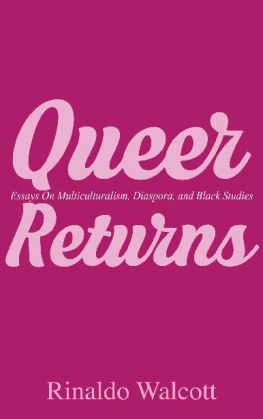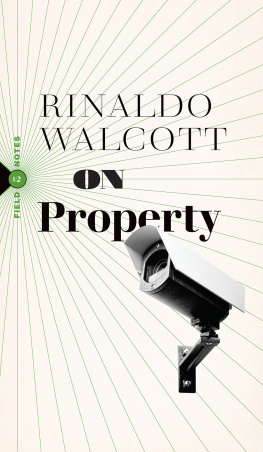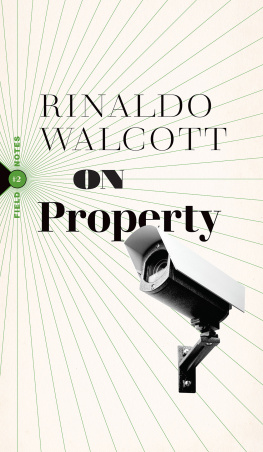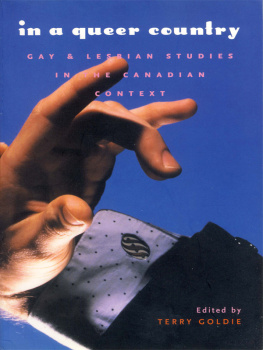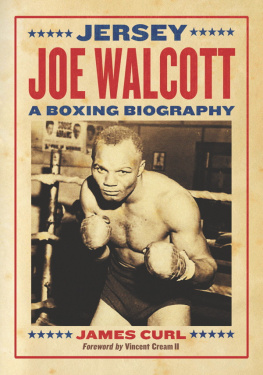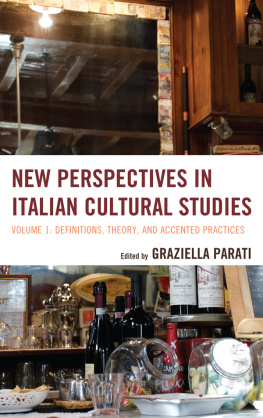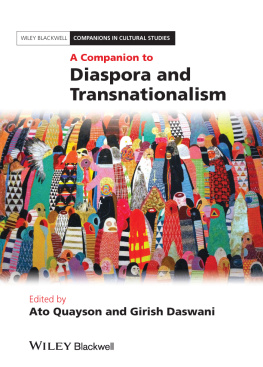Queer Returns
Also by the author
Black Like Who?
Black Like Who 2
Rude
Queer Returns
Essays on Multiculturalism,
Diaspora, and Black Studies
Rinaldo Walcott
Copyright 2016 by Rinaldo Walcott
All rights reserved. No part of this publication may be
reproduced, stored in a retrieval system or transmitted, in any form or by any means, without the prior written permission of the publisher or, in the case of photocopying or other reprographic copying, a licence from Access Copyright,
1 Yonge Street, Suite 1900, Toronto, ON M5E 1E5
Library and Archives Canada Cataloguing in Publication
Walcott, Rinaldo, 1965-, author
Queer returns : essays on multiculturalism, diaspora
and black studies / Rinaldo Walcott.
ISBN 978-1-55483-174-6 (paperback)
1. Queer theory. 2. Blacks--Race identity. 3. African diaspora.
4. Sexual minorities. 5. Multiculturalism. 6. Gays, Black. 7. Group
identity. 8. Geography--Psychological aspects. I. Title.
HQ76.25.W36 2016 306.76'608996 C2016-906833-1
The publisher gratefully acknowledges the support of the Canada Council for the Arts and the Ontario Arts Council.
Printed and bound in Canada
Insomniac Press
520 Princess Avenue, London, Ontario, Canada, N6B 2B8
www.insomniacpress.com
Contents
Introduction: Queer Returns and Other
Moments to Come
Dramatic Instabilities: Diasporic Aesthetics As
a Question for and about Nation
Multicultural and Creole Contemporaries: Post-
colonial Artists and Post-colonial Cities
Into the Ranks of Man: Vicious Modernism and
the Politics of Reconciliation
Disgraceful: Intellectual Dishonesty, White Anxieties,
and Multicultural Critique Thirty Years Later
Spoken Word and Afrodiasporic Performances of
Race Memory
Queer Returns: Human Rights, the Anglo-
Caribbean, and Diaspora Politics
Against the Rules of Blackness: Hilton Als The
Women and Jamaica Kincaids My Brother (Or
How to Raise Black Queer Kids)
Black Queer Studies, Freedom, and Other
Human Possibilities
Blackness, Masculinity, and the Work of Queer
Introduction:
Queer Returns
and Other Moments to Come
These essays span over a decade of returns. The returns are framed by my ongoing engagements and entanglements with cultural and political concerns routed through Black being, Black life, and its experiences. For more than twenty years, my scholarship has sought to bring blackness into a conversation demonstrating how Black peoples contributions to global life, first in Canada and then beyond, might animate new ways of being in the world. The essays collected here continue that work. These essays also mark the ongoing maturity of a scholar attempting to figure out how to return to scenes of previous engagements in ways that demonstrate growth, change, and doubt. The dilemma of working across, within, and against the anti-Black formation of the university is central to the work collected here, even though not explicitly marked as such. In this way, these essays represent a continuing intellectual development that is far from achieved.
Queer Returns , then, returns to familiar themes in my body of work such as diaspora, multiculturalism, sexuality, nation, and citizenship. In each return I seek to ask a set of questions at a specific historical moment that aim to produce an account of our time in which a focus on Black lives and their expressivity might clarify what exactly is at stake for all of us. These essays center Black people, not because Black people are exceptional, but rather because I maintain the position that Black people are central to the larger and deeper fulfillment of what we call freedom. As our present time marks so clearly, the question of freedom and Black people is one that is in deep crisis. Freedom has been and remains a stubborn global impossibility for Black people everywhere. And yet the essays collected here hint at a number of ways in which Black people continue to apprehend and seize moments of freedom. In each case the seizure of freedom is interdicted and the process begins anew.
Questions of what it means to be human, of queerness, and of citizenship and nation return us to freedom, but most of all those questions when threaded through Black life remind us of freedoms elusive qualities. In the place of freedom we notice the structures that uphold status quo practices, and we are forced to notice that those status quo practices are often premised on ways of being that offer Black life and Black beings no place to achieve the ideals marked and claimed as freedom. In these essays, I engage debates on multiculturalism, reconciliation, LGBT identities and politics, diaspora, and other conceptual and identity politically driven narratives and debates; each essay suggests that what might be at stake is how we think about the problem at hand. Indeed, it is often the very question of thought that is at stake when blackness and Black people enter the central frame of the conversation.
Following from the above, Black Studies, as a multidisciplinary and interdisciplinary intellectual formation, has been the touchstone from which these essays find their voice and their mode of utterance and from which they emerge. The politically engaged demand of Black Studies that begins with the politics of thought as engaged in the project of and the struggle for freedom is what stands behind each essay. Black Studies in these essays is not only both breadth and range, but also a demand that knowledge means something beyond the institutional confines of the university. These essays are marked by an attempt to make use of the university as a site to engage both it and other institutions as fundamental sites for ongoing freedom struggles. The university then is merely a base from which a Black Studies engaged scholarship might launch an assault on multiple institutions complicit and actively engaged in the work of (Black) unfreedom. Black Studies in these essays is the ongoing incitement that the work of freedom is not yet over, that freedom is not yet achieved.
Significantly, most of these essays are influenced by the aftermath of the September 11, 2001 events in the USA. While not every essay explicitly addressed those events now singularized and globalized as 9/11, most of them have it as their backdrop because the aftermath of the event, now singular too, required that we rethink so much of what in the 1990s had seemed almost settled or on the way to being settled. Debates about nation, religion, citizenship, multiculturalism, diaspora, colonialism, sexuality, gender, and on and on have now all been caught up in the aftermath of 9/11 in a way that restages the most urgent questions of the mid-twentieth century, tackled in the 1960s and after. The restaging of these questions of liberation, which seemed on the way to being settled, has returned us to deeper conceptual questions and concerns about the global organization of all human life. One might argue that in a strange way the violence unleashed post-9/11 globally has forced us to think anew about what it means to be human.
In my view, it is what it means to be human that is ultimately at stake. The struggle over the category of the human marks these essays in indelible ways. Again, because Black people are often so firmly ejected from the current, partial definition of what it means to be human, when Black people are centered, other modes of being emerge. These essays grapple with those other modes of being to insist that new modes of being human are indeed possible. To argue for new modes of being human is not to suggest some easy notion of hope that rests in a renovation and reforming of the world as it presently is. Rather, the grappling with what it means to be human is a more radical call for an entire and total transformation of the globe as it presently is.

